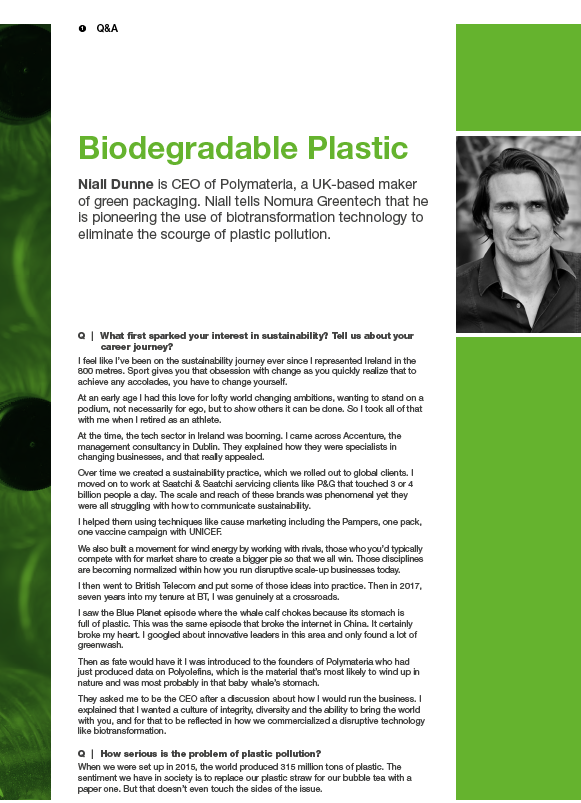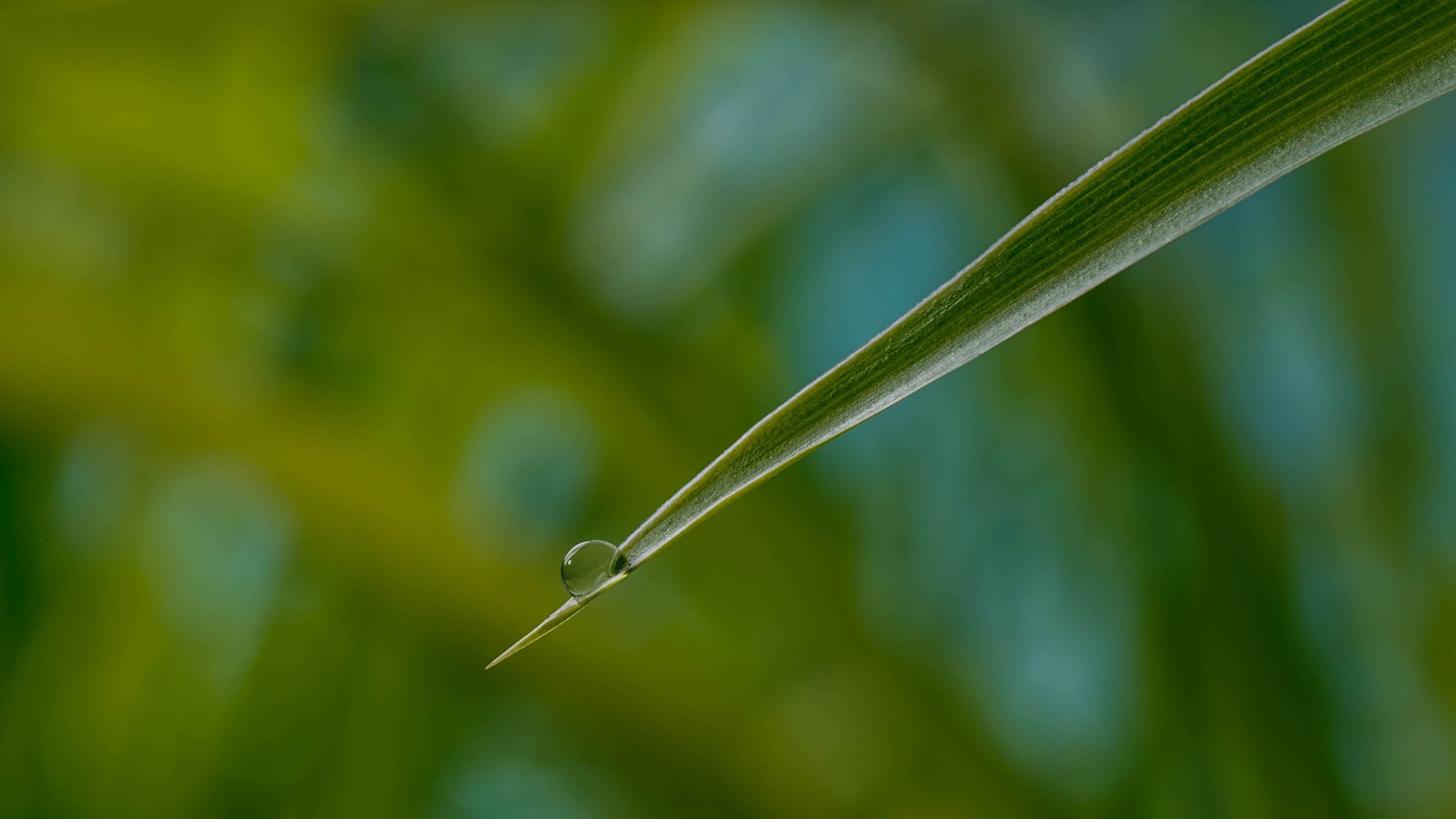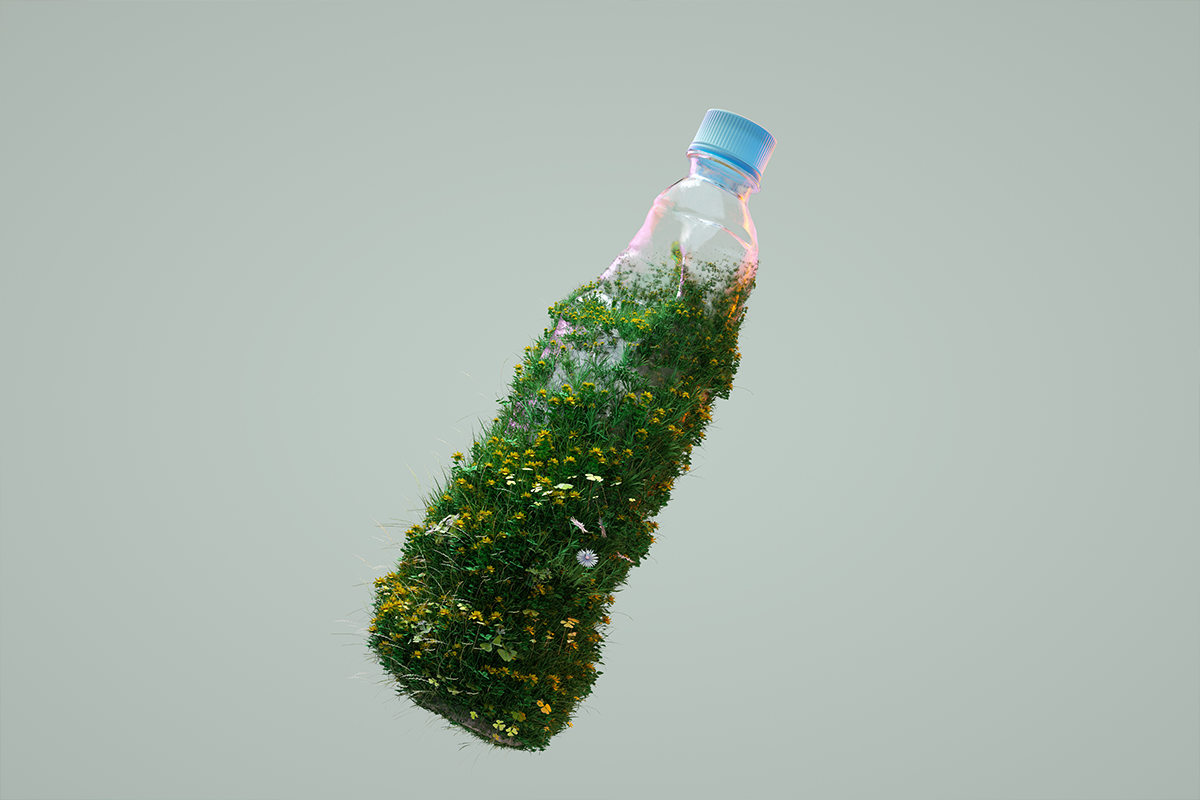-
Plastic pollution is a global problem because it’s western consumption being exported to countries that don’t have the infrastructure to cope
-
Biotransformation technology ensures that plastic which has escaped refuse streams can fully biodegrade in the natural environment
-
Polymateria is diversifying the technology out of food packaging and into agricultural applications
What first sparked your interest in sustainability?
I feel like I’ve been on the sustainability journey ever since I represented Ireland in the 800 metres. Sport gives you that obsession with change as you quickly realize that to achieve any accolades, you have to change yourself.
At the time, the tech sector in Ireland was booming. I came across Accenture, the management consultancy in Dublin. They explained how they were specialists in changing businesses, and that really appealed.
Over time we created a sustainability practice, which we rolled out to global clients. I moved on to work at Saatchi & Saatchi servicing clients like P&G that touched 3 or 4 billion people a day. The scale and reach of these brands was phenomenal yet they were all struggling with how to communicate sustainability.
I helped them using techniques like cause marketing including the Pampers, one pack, one vaccine campaign with UNICEF.
We also built a movement for wind energy by working with rivals, those who you’d typically compete with for market share to create a bigger pie so that we all win. Those disciplines are becoming normalized within how you run disruptive scale-up businesses today.
I saw the Blue Planet episode where the whale calf chokes because its stomach is full of plastic. This was the same episode that broke the internet in China. It certainly broke my heart. I googled about innovative leaders in this area and only found a lot of greenwash.
Then as fate would have it I was introduced to the founders of Polymateria who had just produced data on Polyolefins, which is the material that’s most likely to wind up in nature and was most probably in that baby whale’s stomach.
They asked me to be the CEO after a discussion about how I would run the business. I explained that I wanted a culture of integrity, diversity and the ability to bring the world with you, and for that to be reflected in how we commercialized a disruptive technology like biotransformation.
How serious is the problem of plastic pollution?
When we were set up in 2015, the world produced 315 million tons of plastic. This year we’ll break through 400 million tons of plastic production globally. It roughly tracks the global middle class and as GDP grows in different parts of the world, the problem will only get worst. Mostly, it’s food packaging, but everything else too.
Delving into where that 400 million tons is going, 40% goes to landfill, 32% winds up in nature, 14% goes back on the grid by burning it and 14% we claim is recycled, but only really 2% of that is pure enough to be used again in food contact approvals.
It’s a very difficult material to create a recycling loop around versus steel and some of the higher value materials.
The 32% of plastic that winds up in nature is where we’re focused. That’s equivalent to 100 million tons. We developed the technology for Polyolefins first as it’s the largest share.
It’s a global problem because it’s western consumption being exported to countries that don’t have the infrastructure to cope. It’s hard to know the provenance of the plastic. So our theory of change is to stop it on land before it gets into rivers and oceans - 80% of all ocean plastic gets there from land.
How important is the green materials industry in addressing that problem?
Green materials will play an increasingly crucial role as the problem needs to be solved at scale. To give some context, the early days of green plastics innovation were not pretty. Over the past decade, technologies have emerged claiming degradation, but they were just physically fracturing plastic.
That inevitably creates micro plastics, which exacerbates the problem of plastic pollution. Some countries have banned the technique although others do still promote it.
These companies went to war with the other main competitor, the composting lobby whose technique takes materials like PLA or polylactic acid and biodegrades it using industrial composting facilities. But it’s not your regular compost. It’s a facility that runs at 60 degrees Celsius and biodegrades after six months. It’s very expensive and you cannot put it into food contact situations. Most places in the world do not have access to this expensive infrastructure.
You have pioneered a biodegradable plastic. Tell us about how the technology works and how it will be used?
We use biotransformation technology to ensure that plastic which has escaped refuse streams can fully biodegrade in nature. When the plastic is exposed to the open environment the biotransformation process kicks in which causes a rapid loss of physical properties into a wax, and eventually biodegrades completely through a process of mineralization. Importantly, no micro plastics are left behind. The technology works across multiple conditions, not being dependent on any single factor. Other methods have failed because they needed oxygen or light or moisture and the other agents of decay didn’t have a role.
A good example is the flexible film on food packaging and salad bags, what’s called collation shrink. We first got that back to nature in 226 days. And for a rigid detergent bottle of 600 microns’ thickness, it took 336 days.
In March we broke our own world record by getting a flexible Polypropylene film made by Toppan, one of the largest film manufacturers in Asia, back to nature in real world conditions in 176 days, and a rigid polypropylene container, fully back to nature in 230 days.
We recently completed our Series B £20 million funding round led by impact private equity fund ABC Impact and sustainable chemical company Indorama Ventures. It will allow us to expand into new markets where fugitive plastic pollution is most acute especially across Asia.
You work closely with Imperial College, one of the world’s leading science universities. What have you gained from that partnership?
We have benefited hugely from being in the Imperial Innovations ecosystem. The whole campus is material science making leading–edge products. There’s a biotech incubator nurturing everything from two people with an idea through to pre-IPO businesses taking entire floors.
The Imperial Innovations platform is very much a symbiotic relationship. Our brand and theirs are interlinked to the point where some of our top people are going to do MBAs at the business school and Polymateria will be a case study on how to build a cleantech company.
The EU is planning rules to prevent packaging waste, boost reuse and make all packaging recyclable by 2030. Would that be a big tailwind for your business?
Honestly, Europe’s only following what other countries have done. I think India is probably a better benchmark.
Prime Minister Modi has banned plastic, less than 50 microns, and has also encouraged innovation in the law by saying exemptions will be given for biodegradability and compostability if you can prove no micro plastic in terrestrial conditions.
That really helps us and you don’t have that in Europe, which is still very much pushing reuse and recycling.
California’s an interesting case. They are banning some plastics but allow exemptions if you can show evidence of biodegradation in less than a year, which is great for us.
Hungary was the first EU member state to adopt a standard that mirrored the British one for biodegradable plastic, and 13 countries are now on that journey.
What are your future plans at Polymateria?
To be the Tesla of plastic.
Quality is paramount because we are introducing volatility to those packaging materials, used by all the big brands and they need be stable enough to be useful. That takes operational excellence. Beyond that, we are diversifying into agricultural applications. We have a very exciting venture that’s in farm trials in the UK for baler twine.
Every time a farmer ties a bale, it creates 16 shards of micro plastic. But the farmer needs the material to be stable enough, long enough to go through the full season and get the straw back on the field or in the shed.
We also have a program called Resin+, which is about infinite scalability. The idea is to normalize the technology by building it into resin at the point of manufacture. This is a game-changer as it would enable us to make millions of tons of plastic biodegradable which would really get to the heart of the problem.
Do you think green companies need more policy incentives to help scale and accelerate their businesses?
I think the plant-based burger companies are doing a great job of winning consumer sentiment without needing any regulatory pressure. If you also have a regulatory tailwind, it creates a pull and push effect.
Consumers are a crucial part of the puzzle. Engaging consumers about the need to reduce fugitive plastics is the most powerful tool to create pull in the market.
Disclaimer
This content has been prepared by Nomura solely for information purposes, and is not an offer to buy or sell or provide (as the case may be) or a solicitation of an offer to buy or sell or enter into any agreement with respect to any security, product, service (including but not limited to investment advisory services) or investment. The opinions expressed in the content do not constitute investment advice and independent advice should be sought where appropriate.The content contains general information only and does not take into account the individual objectives, financial situation or needs of a person. All information, opinions and estimates expressed in the content are current as of the date of publication, are subject to change without notice, and may become outdated over time. To the extent that any materials or investment services on or referred to in the content are construed to be regulated activities under the local laws of any jurisdiction and are made available to persons resident in such jurisdiction, they shall only be made available through appropriately licenced Nomura entities in that jurisdiction or otherwise through Nomura entities that are exempt from applicable licensing and regulatory requirements in that jurisdiction. For more information please go to https://www.nomuraholdings.com/policy/terms.html.





